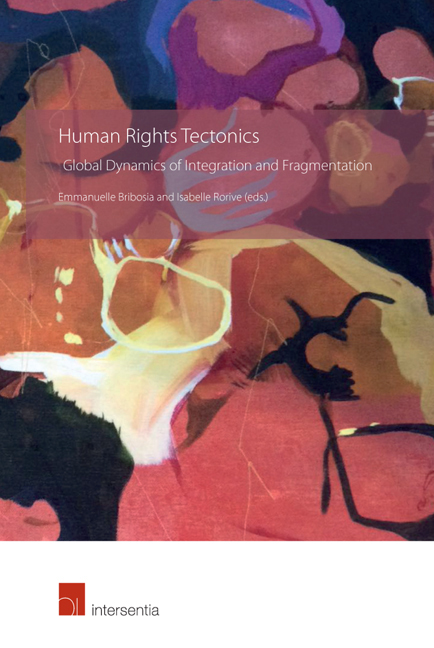Book contents
- Frontmatter
- Foreword
- Contents
- List of Cases
- List of Contributors
- Introduction to Human Rights Tectonics
- PART I PROMISES AND CHALLENGES OF AN INTEGRATED APPROACH TO HUMAN RIGHTS
- PART II HUMAN RIGHTS TECTONICS THROUGH AN ISSUE-BASED APPROACH
- PART III HUMAN RIGHTS DYNAMICS IN EUROPE
- The European Union in the International System of Human Rights Protection: Solo Singer or Voice in the Choir?
- Opinion 2/13 as a Game Changer in the Dialogue between the European Courts?
- Sharing of the Burden of Proof in Cases on Racial Discrimination: Concepts, General Trends and Challenges before the ECtHR
- Rethinking the Two Margins of Appreciation
- About the Editors
Sharing of the Burden of Proof in Cases on Racial Discrimination: Concepts, General Trends and Challenges before the ECtHR
from PART III - HUMAN RIGHTS DYNAMICS IN EUROPE
Published online by Cambridge University Press: 31 January 2019
- Frontmatter
- Foreword
- Contents
- List of Cases
- List of Contributors
- Introduction to Human Rights Tectonics
- PART I PROMISES AND CHALLENGES OF AN INTEGRATED APPROACH TO HUMAN RIGHTS
- PART II HUMAN RIGHTS TECTONICS THROUGH AN ISSUE-BASED APPROACH
- PART III HUMAN RIGHTS DYNAMICS IN EUROPE
- The European Union in the International System of Human Rights Protection: Solo Singer or Voice in the Choir?
- Opinion 2/13 as a Game Changer in the Dialogue between the European Courts?
- Sharing of the Burden of Proof in Cases on Racial Discrimination: Concepts, General Trends and Challenges before the ECtHR
- Rethinking the Two Margins of Appreciation
- About the Editors
Summary
When tracing convergence and divergence in international human rights law, matters of proof and, more particularly, the burden of proof, can arguably not be absent from the discussion. Indeed, there is a growing acknowledgement that the standard of proof and the allocation of the burden of proof over the parties also influence the substance of the norms concerned.Furthermore, given the nature of human rights as rights inherent in being human, their actual enjoyment is essential. In the words of the European Court of Human Rights (ECtHR), rights should not merely be theoretical and illusory, but also practical and effective. While there are many factors that impact this effective enjoyment of rights, judicial review and judicial protection is of crucial importance. When one's rights are not respected and one seeks redress through a court of law, questions of proof are essential. If one cannot furnish proof to the extent required by the law, one will not obtain redress and, ultimately, one cannot enjoy one's fundamental rights. Hence, it is not far-fetched to claim that the effective protection of fundamental rights hinges on the determination of the standard of proof and the allocation thereof between the parties. Furthermore, as the allocation of the burden of proof is closely intertwined with other central doctrines, such as the margin of appreciation, a better understanding of the former will also impact the latter.
The general rule regarding the allocation of the burden of proof is that each party has to prove its alleged claim and the facts upon which it relies, as captured in the Latin phrase ‘onus probandi incumbit actori’.The problem for victims of human rights violations generally, and victims of discrimination in particular, is that they most often do not have access to the necessary evidence to support their case. These evidential difficulties in turn carry the risk of undermining the effective protection against discrimination.
A welcome means to counter this risk is the development of the special allocation of the burden of proof, or the shared burden of proof. Following the special allocation, the applicant merely has to establish a prima facie case of discrimination, after which the defendant has to prove that no discrimination has occurred. In this way, the burden of proof is divided over both parties and no longer rests predominantly on the claimant.
- Type
- Chapter
- Information
- Human Rights TectonicsGlobal Dynamics of Integration and Fragmentation, pp. 271 - 302Publisher: IntersentiaPrint publication year: 2018



